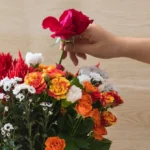Attachment is a fundamental aspect of human development and plays a crucial role in shaping our relationships with others. Attachment styles are shaped in early childhood and can have lasting effects on our lives. Anxious attachment is a style characterized by a fear of abandonment, a need for constant reassurance, and an overwhelming sense of anxiety in relationships.
However, having an anxious attachment style does not mean that we cannot have fulfilling relationships. With the right strategies and mindset, we can thrive with anxious attachment and develop positive growth. In this article, we will explore some strategies for positive growth when dealing with an anxious attachment style.
-
Understanding Anxious Attachment
Before diving into strategies for growth, it is essential to understand what anxious attachment is and how it can affect our lives. Anxious attachment is a type of insecure attachment style that is characterized by an intense fear of rejection, abandonment, and feelings of inadequacy. People with an anxious attachment style tend to be overly dependent on their partners, experience a high level of jealousy and clinginess, and have difficulty trusting their partners. They also tend to be considered people pleasers in their relationships.
Anxious attachment can have a significant impact on our mental health and well-being, as it can lead to increased anxiety, stress, and depression. Additionally, it can create significant challenges in our relationships, as it can lead to a lack of trust, emotional outbursts, and difficulty communicating effectively.
-
Triggers
Anxious attachment can be triggered by a variety of situations and circumstances. Understanding what triggers anxious attachment is an essential step in managing anxiety and developing positive growth in relationships. Here are some common triggers for anxious attachment:
- Fear of abandonment: when a partner spends time with friends or family, not responding to text messages or calls promptly, or showing signs of disinterest in the relationship.
- Lack of control: when individuals feel like they are losing control or are unsure of what is happening in the relationship.
- Past trauma: experiences of abandonment or neglect can create a fear of abandonment and cause individuals to be hypervigilant about the signs of potential abandonment or rejection.
- Low self-esteem: feeling unworthy of love and attention can lead to seeking constant reassurance from partners and becoming anxious when not receiving it.
- Negative self-talk: engaging in negative self-talk can make individuals more susceptible to anxiety and worry, leading to anxious attachment behaviors in relationships.
-
Strategies for Positive Growth
Although anxious attachment can be challenging, there are many strategies that we can use to develop positive growth and thrive in our relationships. Here are some strategies for healing anxious attachment style to consider:
-
Develop Self-Awareness
The first step in developing positive growth when dealing with an anxious attachment style is to develop self-awareness. It is essential to recognize the patterns and behaviors that contribute to our anxiety and identify the triggers that cause us to feel anxious in our relationships. By becoming more self-aware, we can take steps to manage our anxiety and develop more positive and fulfilling relationships.
-
Practice Mindfulness
Mindfulness is an effective strategy for managing anxiety and developing positive growth. Mindfulness involves being present in the moment and focusing on our thoughts and feelings without judgment. By practicing mindfulness, we can become more aware of our thoughts and emotions and learn to manage them effectively. Mindfulness can also help us develop a greater sense of self-compassion and acceptance.
-
Communicate Openly and Honestly
Communication is critical in developing positive and fulfilling relationships. People with an anxious attachment style tend to have difficulty communicating effectively, which can lead to misunderstandings and conflicts. By communicating openly and honestly, we can build trust and intimacy in our relationships and develop a greater sense of security.
-
Build a Support Network
Building a support network is essential when dealing with an anxious attachment style. Having a supportive and understanding network of friends and family can provide us with a sense of security and help us manage our anxiety. Additionally, it can provide us with opportunities to practice healthy communication and develop more positive relationships.
-
Seek Professional Help
If you are struggling with an anxious attachment style, seeking professional help can be an effective strategy for positive growth. A therapist can help you develop coping strategies, manage your anxiety, and improve your communication skills. Additionally, therapy can provide you with a safe and supportive environment to explore your thoughts and feelings and develop more positive and fulfilling relationships. Contact a Huntsville counselling service for a referral.
-
Conclusion
Anxious attachment can be challenging, but it does not mean that we cannot develop positive growth and thrive in our relationships. By developing self-awareness, practicing mindfulness, communicating openly and honestly, building a support network, and seeking professional help, we can learn to manage our anxiety and develop more positive and fulfilling relationships. Remember, with the right strategies and mindset, we can thrive with an anxious attachment style and find happiness and fulfillment in our relationships.
It is important to remember that developing positive growth when dealing with anxious attachment is a journey, and it takes time and effort. It is okay to make mistakes and experience setbacks along the way, but it is essential to remain committed to your growth and stay focused on your goals.
By using the strategies discussed in this article, you can take control of your anxiety and develop more positive and fulfilling relationships. Remember, you are capable of growth and change, and you deserve to be happy and fulfilled in your relationships.







